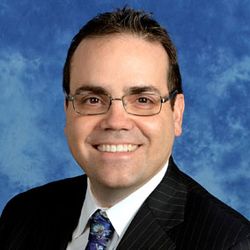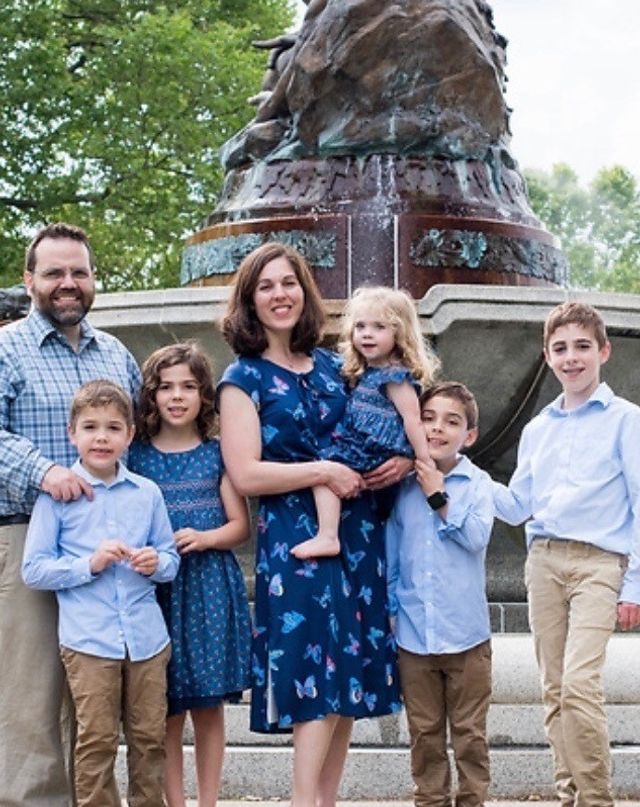Pedro Aguillar:
Embracing the Chaos: Finding Joy in Practice and Parenthood
 Author: Pedro Aguillar, MD
Author: Pedro Aguillar, MD
My very wise mentor once told me, “Son, being an attending is on-the-job training. There is no magic to this. You will have to grow into an attending.” One can say the same about fatherhood
I graduated from residency at the University of Pittsburgh in 2007. As many of us, I began in a tertiary care setting but later found my rhythm in the community setting. I now practice at a large, community hospital in the South Hills of Pittsburgh and focus primarily on degenerative spinal pathology. While training in Pittsburgh, I met and eventually married an anesthesiology resident who was born and raised here--the youngest of thirteen siblings. It soon became apparent we would be staying local after residencies. Pittsburgh had grown on me.
Over the next 14 years, we had five children, now ranging from 3 to 12 years old. I realize how atypical it is to have a large family in 2019. I’m amused at people’s confusion. How can a full-time neurosurgeon and part-time anesthesiologist find joy with five children under 12? How can we balance this professional lifestyle and still “claim” to be happy? Their logic, I believe, stems from two misconceptions: More children = less control and predictability. Less control and predictability = less joy. I personally don’t see it. I’m not saying all neurosurgeons with five kids are happy. I just argue with the “less is more” logic.
My workdays are full of order and logic. Outpatient clinic is about analyzing data and making controlled decisions with limited information. While there are certainly unexpected events during surgeries, we control everything from the temperature in the room, to who exactly is in that room, to making sure the tattoo will align after the skin is closed.
Coming home to screams and laughter is music to my ears. I would find it unendurably dull to come home to a perfectly planned bath-time and tuck them in sterile rooms with immaculate floors. Also, my kids could care less about my resume. They don’t know what CNS, AANS or ABNS stand for. They don’t care how my production card looked last month or how many wRVUs I’m on track for this year. They see me as “dad” and I would never want it any other way. As one gets older, one finds a relative scarcity of relationships devoid of agendas. My kids have an honest view of me, and that resets my internal compass.

I can’t say I make it home for every dinner, but I am successful two to three times each work week and I focus on being actually present when I’m there. I occasionally ruminate on a patient I saw in clinic, or perseverate on an upcoming case, rather than focusing on my kids and their issues. Like all of us, I’m a “work in progress.” Children also have great capacity to forgive when an absence is explained to them, and it can be an important lesson. Explaining that I had to tend to someone else’s problem helps reinforce that the world does not, nor will it ever, revolve around them. They live in a larger community where many are experiencing serious issues.
I have developed a habit of taking one or two older kids rounding with me on the weekends. We spend the commute time catching up on the week, and I park them into the surgeons lounge while I go up to floor. I spare details, but occasionally share some of my work related struggles. There is something therapeutic about allowing children to see their parents struggling. It helps normalize their own struggles and opens a door for communication. Seeing that even a neurosurgeon gets stumped or “messes up,” hopefully takes a load off of their shoulders. At least that’s my hope.
Life is messy and unpredictable. The more we’d like to control it, the less controllable it becomes and the less joy we will find.
Embrace the chaos.